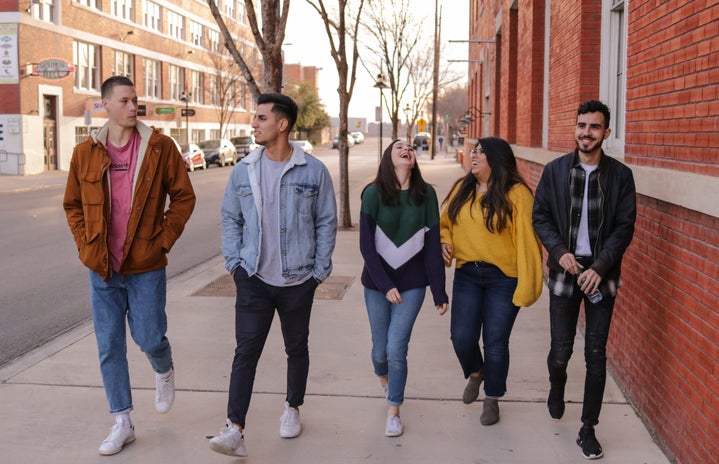When I was 11, one of my best friend’s dad committed suicide.
I didn’t know it at the time, of course. I lived in a small town where not a lot happened. It was boring; it was quiet; it was predictable. Just across the street from me is where one of my closest friends lived. When she was eight or nine, her parents divorced, and her mom won custody. She took the kids and left, leaving the father at the house alone. One night, a few years later, my mom remarked that she was going to a funeral. His funeral.
I’m not quite sure when, but I later learned that his death was a suicide. I barely knew what suicide meant; I was only 10, and that kind of thing didn’t happen around there. Mental health? It was never talked about, any of it.
My second experience with suicide occurred in grade nine. The high school was much larger, and I no longer knew everyone in my classes. The adjustment wasn’t hard for me, thanks to a strong group of friends that supported each other. I joined the cheerleading team, basic I know, but I made friends on the team quickly. It was co-ed, with eight or nine of the members being male. One of them was Peter*.
I became friends with Peter, a kind, sweet, funny guy. I didn’t really understand it at the time, but he suffered from major mental health issues. He was bullied heavily and struggled with identity issues. After January exams, I didn’t hear from him as much. He stopped coming to practices, and even going to school altogether. And then, it happened.
I walked into the cafeteria like I did every day, and sat down at the same table as usual. That’s when someone said to me, “Peter died. He killed himself.”
In that moment, it wasn’t real. It did not hit me. I just shrugged and said “wow, that’s crazy.” The bell rang and I went to first period. The anthem came on, followed by the prayer, followed by a somber request for the cheerleading team to report to the stage. I moved to the stage, where the team slowly filed in. Everyone sat in silence as our coach looked down on us, and, choking back tears, told us of his death. That’s when the tears came, and I didn’t think they would ever stop.
That time of my life is foggy, but what I do remember is that there was no conversation about suicide, or mental health. The church filled for his funeral and everyone sobbed uncontrollably with the “he’s too young,” and “gone too early.” But they never really fully explained the situation. No one liked to say that he killed himself. Peter’s mother began advocating for the local mental health facility, and it was learned that Peter had tried to make an appointment to seek help but was put on a six month long waiting list. But he couldn’t wait six months, he needed the help right in that moment. His only way out was suicide.
The topic of suicide was not something anybody liked talking about. My mother never sat me down after my friend’s father’s death and explained to me what suicide is. They never sat us down at school to tell us about mental health. The Netflix show 13 Reasons Why inspired me to write this article and pose this question: Why is suicide only talked about when it already happened?
As I reflect I realize that no one ever, ever talks about suicide if they can help it. The obituary says that they tragically passed away. When someone asks about the cause of death, the tone becomes hushed and we avoid talking about it. Suicide is not a bad word. Suicide is a reality that we have all become too familiar with. Suicide needs to become a discussion.
We are moving towards a future where we can better understand mental health, and are learning how to treat it. The discussion on mental health is growing, but we still shy away from suicide as if just saying it is going to cause it. If we discuss it, we can teach people how to prevent it, how to recognize the signs, and most importantly: how to seek help.
I’d like to end the discussion here with this: you are loved, you are important, and you will be okay. It’s okay not to be okay, but there are so many other options than suicide. Help is there and it takes courage, but the best step you can take is to reach out.
Reach Out: 24 hour phone crisis hotline, 519-433-2023
Student Health Services: UCC Room 11, 519-661-3030
Good 2 Talk: Post-Secondary Student Helpline, 1-866-925-5454


